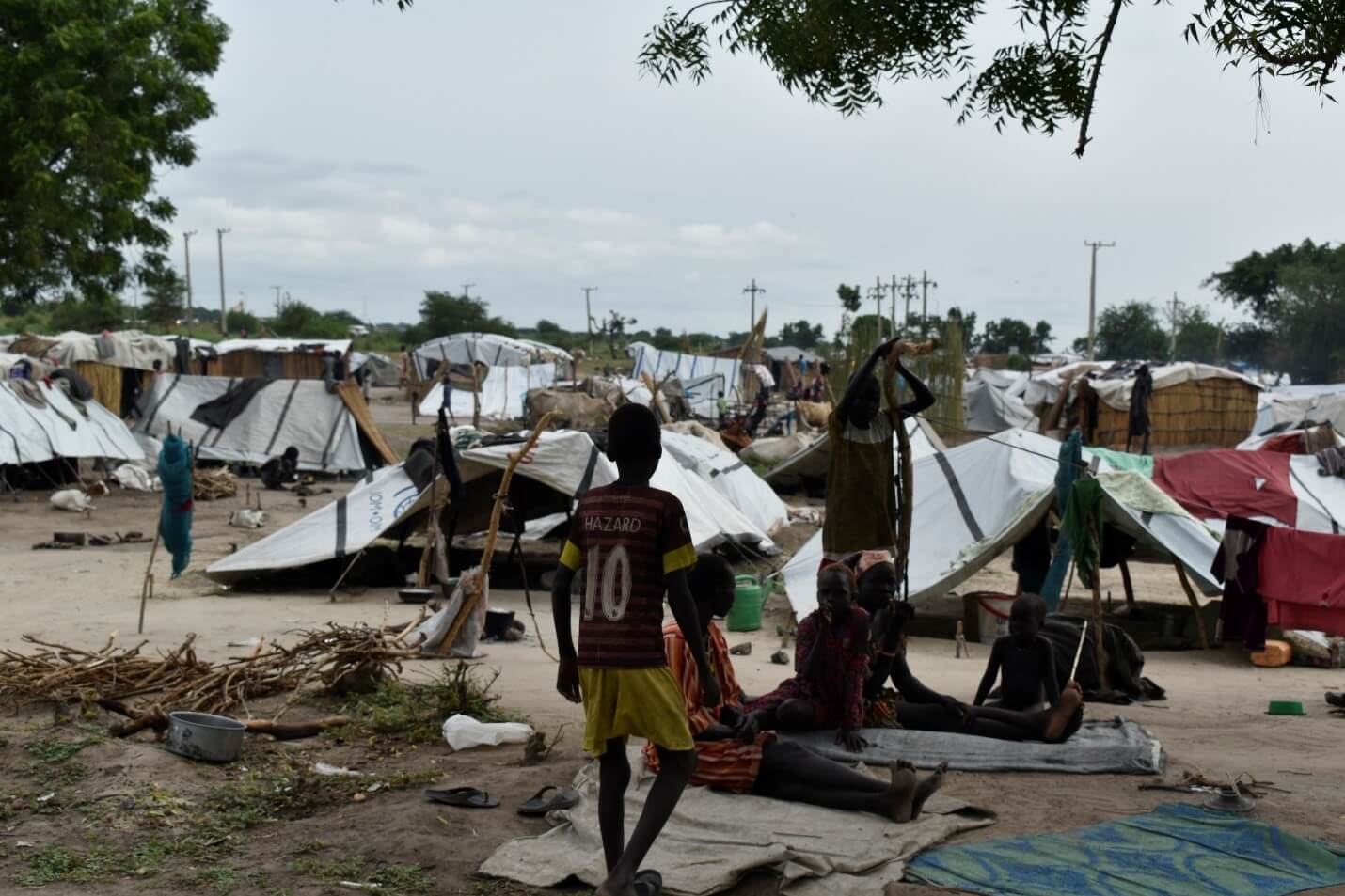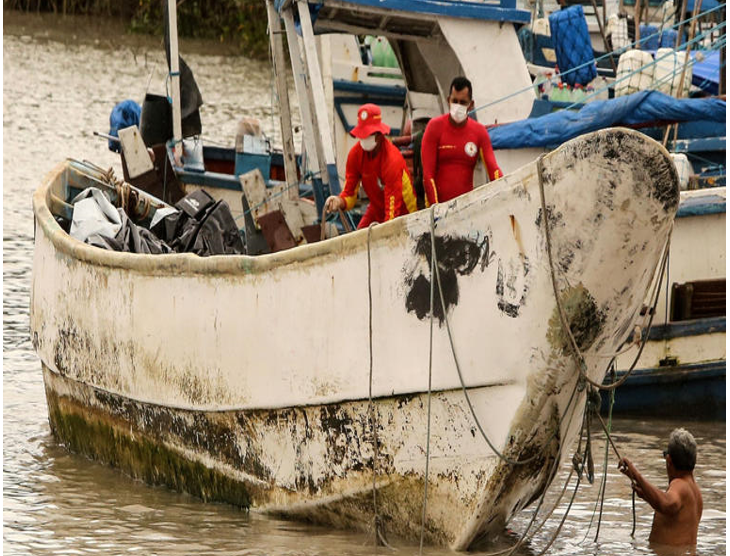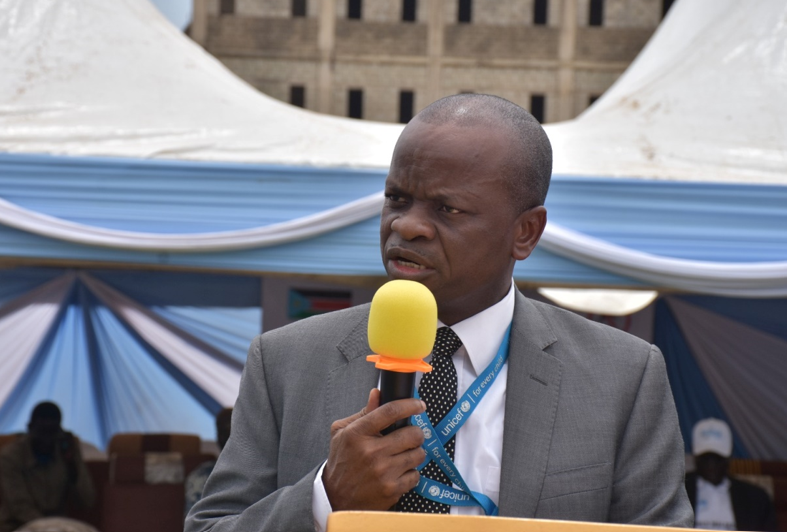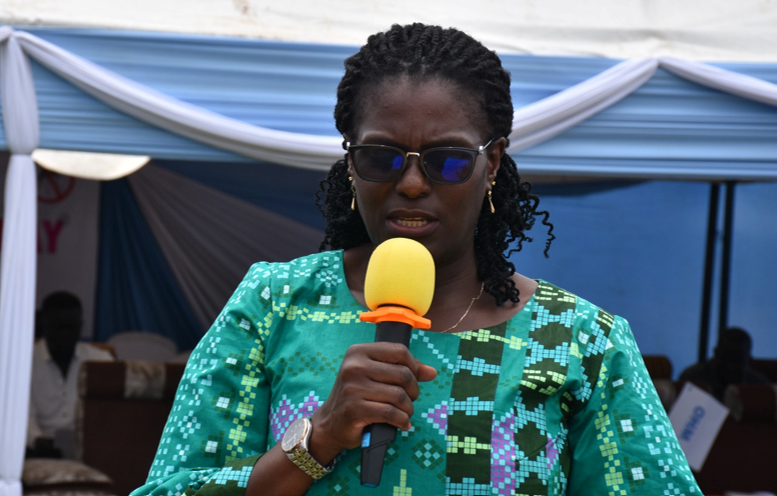Ejected by floods, desperate Bentiu IDPs appeal for help

Bentiu Town has lately hit the headlines as one of the most affected areas by the ravaging floods currently being felt in Unity State.
The City Review embarked on a journey to assess the conditions of the makeshift camps that now house thousands of Internally Displaced Persons (IDPs) within just a paltry 2,756 units.
Most of the displaced persons are from Nyeildiu County, in the outskirts of Rubkona, says the Relief Rehabilitation Commission managing one of the camps for the IDPs.
A tour within the camp paints pictures of sorrows but also love and search for renewed hope. Families share the few tents and go through the challenges together.
The RRC representative William Makuak says that there are many people who have still been coming out of the flooded areas to join in the Rubkona camp since August up to date. He says that around 50 families report per day but that depends on the day.
Most of the people are coming from the areas of Nyaldiu, Jezira, Nyien, Garkan, Guet, and others from the Upper Nile.
“We have 16,536 people displaced in the camp and we are monitoring the situation of the people in the camp and then we report to the agency and the Government,” he revealed.
He said there was a need for support to be provided to the displaced persons as they lack food, medicine, and even shelter.
Most of the displaced families wake up to nothing but only wish that a good Samaritan could knock on their doors to provide meals. They survive on millet that they received from the government of Unity State.
The City Review spoke to some of the displaced persons in the camp with most of them raising concerns about the lack of food because they were not able to carry food and other important materials as the water pushed them away from their original homes.
One family, comprising an 80-year-old grandmother and her 11-year-old grandson who is disabled explained that she is in the camp due to the floods that started late at night. She says they were taken by surprise by the silent attack of the water in their house in her village Nyaldiu, and from there; life has become very difficult for him and her.
She narrated how they stood the whole night waiting to see the daylight so that they can relocate to a higher land where the water cannot reach.
“I felt so cold, it was like a dream so I relaxed a bit but then I felt the water on my feet that is when I decided to put on my torch only to see water all over the room. Our food was soaked in water, mattresses and everything, I got so confused,” she recalled.
She added that with her old age and her eyes not seeing clearly; all she could think about was how and where they were going to relocate. And, at the same time, the water was flooding very fast and increasing and that is when they started walking heading towards Rubkona.
Her grandson’s disability compounded her worries even more.
“I carried my grandson and we started the journey in search of a dry place to settle but we left everything behind. Right now, our life is a mess: no food, shelter, clean water, and even medication,’’ she lamented.
The City Review established that it took a movement of hours for the two to move through the waters to locate the camp. And, even as they did so, danger lurked on their trails owing to the water snakes and dangerous insects that invade the water.
“I was carried up and put in the car, we got out of the water and I was happy,” the boy said.
In the same camp was a group of women sitting under a tree dressed in tattered clothes and milling around traditional firewood stove which had nothing substantial to be cooked for lunch.
They said their main worry is a lack of medication for their children, food, and a place to sleep because they were not able to carry their belonging while walking for days to reach Rubkona camp.


